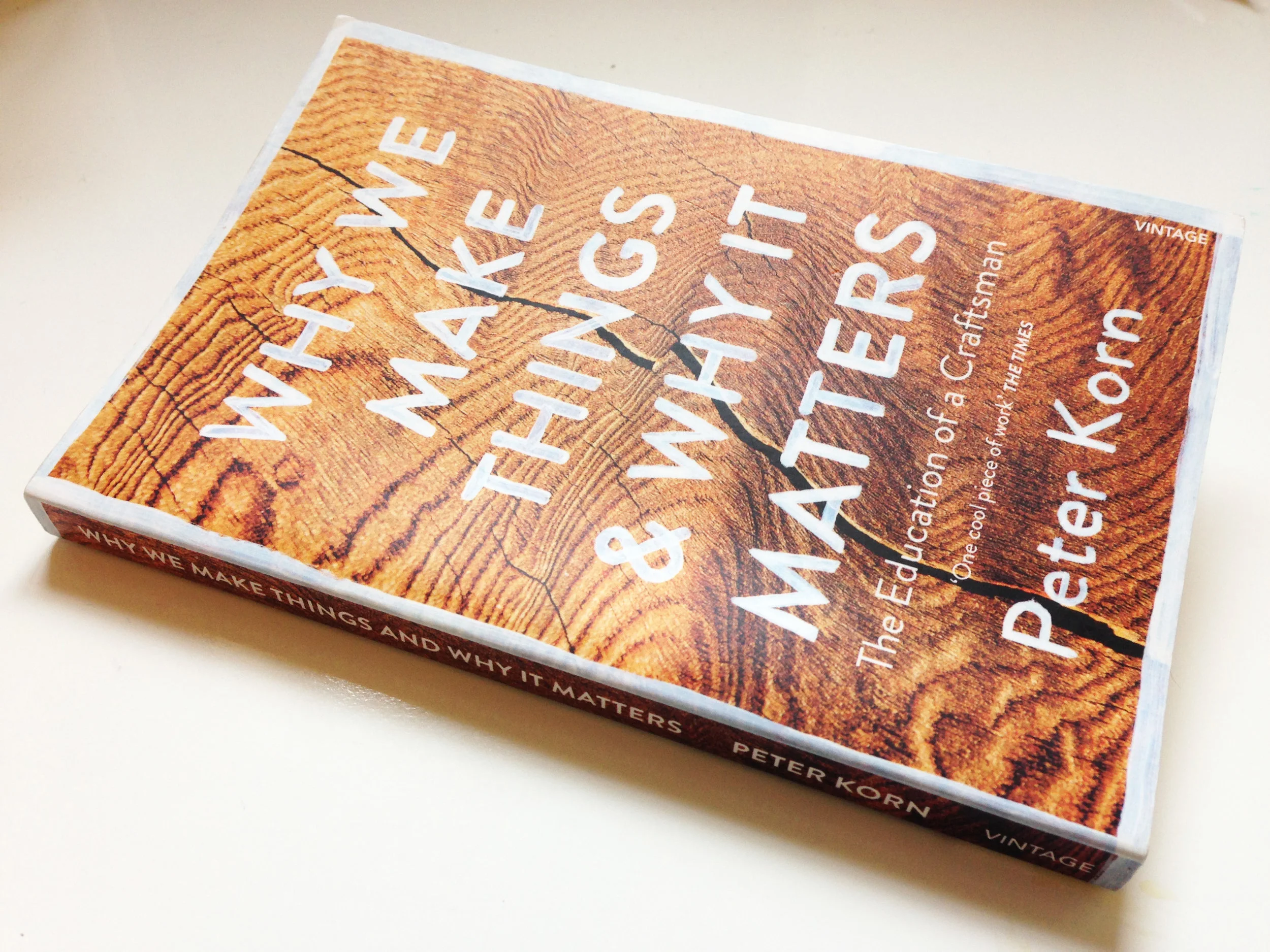With January being such a good time to take stock and reflect I thought my book recommendation this month should be a book that allows you to consider your creative practice through the eyes of another.
Peter Korn’s Why we make things & why it matters is a beautiful book. Part autobiography, part philosophy for living (and making) it is deeply personal and yet completely relevant to all people who aim to make a living from the work they do with their hands.
We follow Korn’s journey from carpenter to master craftsperson, as he establishes a successful practice and builds a woodworking school. Within this framework he reflects on the development of his own skills and his voice as a maker, and he begins to expound his own philosophy of making. Why we are driven to create, to make things with our hands, why objects that are handmade are so important:
I discovered within myself the capacity to transform a wisp of thought into a beautiful, enduring object. I see the same empowering revelation take place in my students today as they perform the miracle of creation. This, I would suggest is precisely what makes creative practice such a generous source of fulfilment, beyond the pleasure of engaging head, heart, and hand in unison. It exercises one’s innate capacity to re-form the given world in ways that matter.
We learn of his beliefs about the power of making to enable self-transformation of the maker:
The critical point, as I began to see it, was that all people who engage in creative, self-expressive work – visual artists, craftspeople, writers, composers and others – participate in the same essential human activity as a woodworker does at the drawing board and the bench. None of us enter our studios because the world desperately requires another painting or symphony or chair. But none of us takes the work lightly, either, because it entails too much commitment, discipline, risk of failure. Those who choose to do it professionally, except for the very few who reach the top, could find more effective ways to earn decent livings. The simple truth is that people who engage in creative practice go into the studio first and foremost because they expect to emerge from the other end of the creative gauntlet as different people.
He explains how engaging in creative activity allows people to act on their personal motivations and values (for example, integrity, meaning-making, contribution, sustainability, mastery of skills) to ‘become more of whom we’d like to be.’ How the creation of our personal ‘good life’ turns making into a vocation rather than a career, where we set the terms. And, although the tone of much of the book is ideological, it’s not free from reality. His own story is rooted in challenges and hard work, and he is clear that choosing the creative path doesn’t necessarily mean that we end up happier people:
To master a craft is not to achieve a state of enlightenment, despite my youthful expectation to the contrary. Creative practice simply makes our lives richer in meaning and fulfilment than they otherwise might be.
Now, you may not agree with some of the statements he makes. It’s possible you don’t see your own creative practice in quite such spiritual and self-actualisation terms. Or perhaps you’ve never given it much thought. And that’s where I’d say the strength of this book lies – it asks you to question the assumptions you make about the life you have chosen to lead. To wonder why it is you do what you do. To contemplate how living a creative life connects you to other people, places and times in ways that you may not realise or consciously engage with.
Read this book. Question things. Begin to understand your own philosophy for life and making. Tell about it. This is the stuff that makes your work sing.
Why we make things & why it matters by Peter Korn. Published by Vintage
